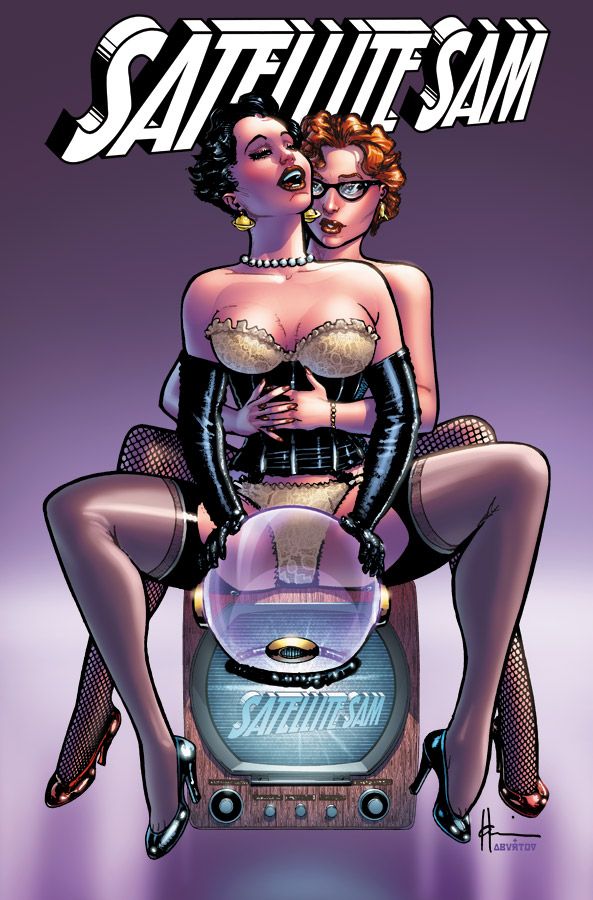It's been seven issues since the star of the 1950s TV thriller "Satellite Sam" was found murdered, but there's still plenty of mystery and intrigue to be found in Matt Fraction and Howard Chaykin's "Satellite Sam" #7. The show's former star Carlyle White might be dead, but the mysteries of his life continue to pile up even as the one surrounding his death remains, as his confidante Libby and son Michael discover in this issue.
Carlyle White had plenty of secrets and hang-ups, to be sure, and as the series progresses, it's evident that he wasn't the only one. Michael struggles as he learns about his father's true nature even as he strives to follow up his legacy, all while dealing a worsening drinking problem and increasing sexual issues. He's in good company, though, as the other show workers at the fledgling LeMonde network are all dealing with their own illicit issues; there's plenty of backroom sex, blackmail, conniving and other skeletons waiting to be dragged out of their respective closets, and that's what continues to power Fraction and Chaykin's complex and compelling story. It's a story that has all the disreputable but oddly-attractive elements of a modern-day TV soap opera, ironically set against the backdrop of a far more innocent children's TV show, and in a time considered by many to also be far more innocent.
While many of the story elements might be no different from those seen on "Melrose Place," this issue, like the rest of the series, is far more than a guilty pleasure. There are intricacies here that can't just be breezed by; Fraction's layered story shines a dark light on the TV industry, the social climate of the time, and the shadier side of human nature, while Chaykin's layouts tell far more than might be apparent at first glance. In seven issues, Fraction has now had time to explore the lives, characterization, and motives of the dozen or so players in the title, and many of their own situations rival the intrigue of the original murder mystery. The luster of "Satellite Sam" has not dimmed since its debut; in fact, if anything, the complexity has enhanced Fraction's excellent storytelling and characterization that has been the strength of this comic since its very first issue.
Chaykin has remained in top form, as well, with layouts and panel placement that continue to exemplify why he's one of the masters of the comic art medium. Also deserving of accolades is Jed Dougherty's digital enhancements, which add a rich variety of shading and textures throughout the issue, giving nearly every page a lush, unique, and densely packed look of varying granularity, yielding a seemingly infinite number of grey tones that look every bit as opulent as traditional colors. Chaykin and Dougherty's art make the comic every bit as excellent as Fraction's story does.
"Satellite Sam" #7 isn't the most accessible for those not up to speed on past issues, but one look at this comic will make readers want to seek them out. Like the rest of the series, this issue is a superb example of what great comics can be like, even without superheroes. Or color.

